
Heatwaves: what mortality rates and what are the challenges for MSF?
Aina Roca Barceló, Lana Whittaker & Kévin Jean
Dr Aina Roca Barceló - Climate Adaptation Support Specialist at MSF Humanitarian Action for Climate and the Environment (HACE); hosted in MSF-UK.
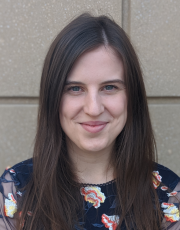
Lana Whittaker, Lecturer in Climate Change and Health and Director of Research at Urban SHADE (Strengthening Health Access and Delivery in Extreme weather events in urban areas) at the Liverpool School of Tropical Medicine

Kévin Jean, epidemiologist, Junior Professor of Health and Global Change at ENS-PSL, specialist in the health assessment of energy transition scenarios.
On 6 June 2024, MSF France's Green Team and the Crash team welcomed Lana Whittaker, Kévin Jean and Aina Roca Barceló for a conference on heatwaves.
You can find all the speaker's presentations here: PPT presentation_0.pdf
Heat waves are among the most visible manifestations of climate change. According to the scientific network World Weather Attribution, the extreme temperatures recorded since last March in the Sahel, the Middle East and Asia (Thailand and the Philippines in particular) would not have been possible in the pre-industrial era. As the atmosphere warms, heat waves are becoming more frequent and more intense. They represent a major public health problem, of which we became aware in France in 2003. At that time, 15,000 people died as a result of the heatwave - half from pathologies directly linked to the heat, the other half from the decompensation of chronic illnesses. Since then, the adoption of individual, collective and structural measures within the framework of the “Heatwave Plan” has enabled us to drastically reduce the excess mortality linked to these phenomena.
What is the situation in the various regions of Africa, the Middle East, Asia and Latin America where MSF operates? What is the frequency and intensity of heat waves? Is their impact on health comparable to that observed in wealthy countries with continental or temperate climates? What responses have populations and authorities deployed? Who are the most vulnerable groups? And how is MSF approaching this new phenomenon at operational level?
These are the questions we tackled at a conference co-organized by MSF France's Green Team and Crash, with Cyril Bousquet, ex-MSF who now works alongside Extinction Rébellion. We were delighted to welcome:
Lana Whittaker, Lecturer in Climate Change and Health and Director of Research at Urban SHADE (Strengthening Health Access and Delivery in Extreme weather events in urban areas) at the Liverpool School of Tropical Medicine.
Kévin Jean, Epidemiologist, Junior Professor of Health and Global Change at ENS-PSL, specialist in the health assessment of energy transition scenarios.
Aina Roca Barceló, Specialist in climate adaptation support at MSF Humanitarian Action for Climate and the Environment (HACE / MSF-UK).

To cite this content :
Aina Roca Barceló, Lana Whittaker, Kévin Jean, “Heatwaves: what mortality rates and what are the challenges for MSF?”, 6 juin 2024, URL : https://msf-crash.org/en/conferences-debates/heatwaves-what-mortality-rates-and-what-are-challenges-msf
If you would like to comment on this article, you can find us on social media or contact us here:
ContributePast events
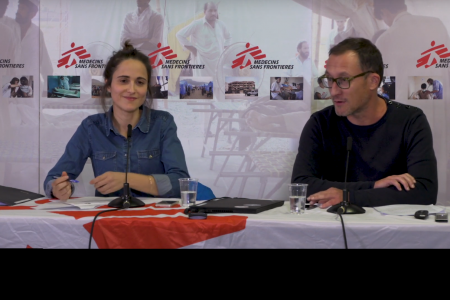 Conference
Conference
Motivations for mass violence: different interpretations
10/03/2019 - 06:00 PM 08:00 PM Nicolas MariotConference – debate, Thursday, 3 October 2019, 6-8pm, 1st floor meeting room at MSF, 8 rue Saint Sabin. Streaming and simultaneous translation into English available.
What turns ordinary men into killers? The CRASH team invited you to a conference – debate with the sociologist and historian, Nicolas Mariot, author of an article entitled « Faut-il être motivé pour tuer? Sur quelques explications aux violences de guerre » (Genèses, n°53, 2003, p. 154-177) and books such as “Face à la persécution. 991 Juifs dans la guerre" (with Claire Zalc, Paris, Odile Jacob, 2010), “Tous unis dans la tranchée ? 1914-1918, les intellectuels rencontrent le peuple" (Paris, Seuil, 2013). Nicolas Mariot presented two different interpretations of motivations for mass violence in the 20th century, drawn from a series of studies and surveys on the subject.
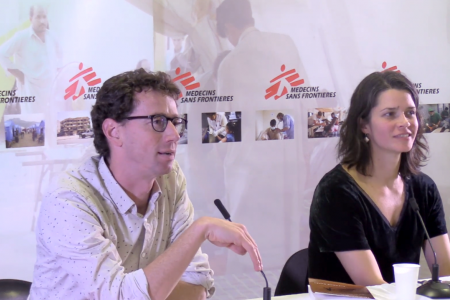 Conference
Conference
Third-Worldism and Sans-Frontiérisme 1954-1988
04/11/2019 - 06:30 PM 08:30 PM Eleanor DaveyEleanor Davey, historian of ideas and humanitarianism, senior lecturer at the Humanitarian and Conflict Research Institute, University of Manchester, discusses her book, Idealism Beyond Borders. The French Revolutionary Left and the Rise of Humanitarianism, 1954-1988, devoted to the intellectual history of sans-frontiérisme and Third-Worldism, in France, from the Algerian war to the early years of Médecins Sans Frontières.
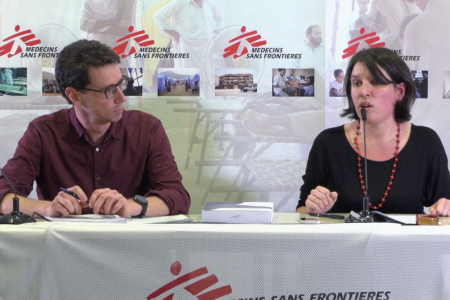 Conference
Conference
Healing foreigners in France: The State and the civil society organisations from the 80s to the 90s
12/17/2018 - 06:00 PM 08:00 PM Caroline IzambertThe CRASH team invited you to the debate-conference “Healing foreigners in France: The State and the civil society organisations from the 80s to the 90s” on Monday 17th of December 2018 from 6 to 8pm, in the 1rst floor room at the 8 rue Saint-Sabin. We hosted Caroline Izambert, who recently defended, at the EHESS, her PhD thesis focusing on the foreigners’ access to healthcare in France. Her title: “Heal foreigners?” The State and the civil society organisations for the health coverage of the poor and foreigners in France from the 1980s to the present day.
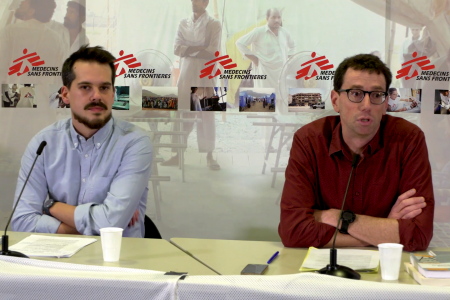 Conference
Conference
Borders and Hospitality
11/26/2018 - 06:00 PM 08:00 PM Benjamin BoudouConference/debate with Benjamin Boudou, political scientist and researcher at the Max Planck institute.
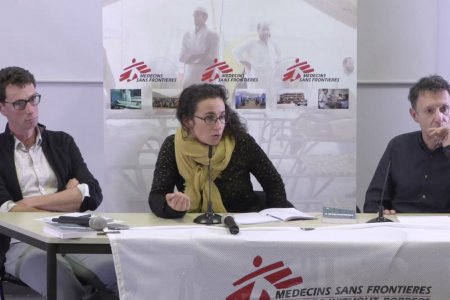 MSF-Crash
Conference
MSF-Crash
Conference
Immunization: new perspectives on vaccines - Conference with Lise Barnéoud
12/05/2017 - 06:00 PM 08:00 PM Lise BarnéoudWho profits from vaccination? Individuals? Society? Companies? Is vaccination efficient? Is it dangerous? Profitable? What are the factors influencing public opinion in this domain? Lise Barnéoud, science journalist and author of Immunisés ? Un nouveau regard sur les vaccins, has engaged in an investigation revealing multiple - and sometimes contradictory - realities observed in the French vaccination sector. She has carried out her investigation from three distinct viewpoints: the one of a mother who needs to decide whether to vaccinate her children or not; of a journalist leading an enquiry; and of a scientist analyzing how facts are built.
Lise Barnéoud was a Crash guest speaker at a conference on vaccination held on December 5, 2017. A discussion with Epicentre, Crash and the MSF Medical Department allowed us to exchange views on vaccinal policy, which remains a cornerstone of MSF operations and a recurring subject of discussion and controversy.
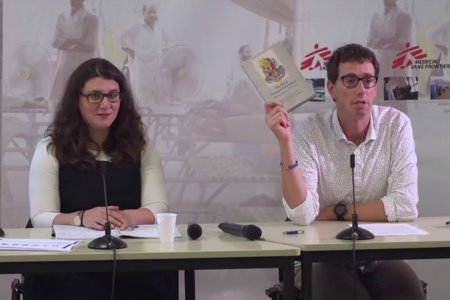 MSF
Conference
MSF
Conference
Humanitarian anthropology : conference with Sharon Abramowitz
10/23/2017 - 06:00 PM 08:00 PM Sharon AbramowitzSharon Abramowitz is an anthropologist and a visiting researcher at the Department of Anthropology at Rutgers University, co-editor of recently published Medical humanitarianism. Ethnographies of practice. She has devoted much of her work to responding to epidemics - most recently in Ebola, and in West Africa, Liberia in particular.
During the conference organized by MSF-Crash on 23 October 2017, she discussed the contribution of medical anthropology to humanitarian action as well as her latest book and most recent projects.
Période
Newsletter
Subscribe to our newsletter to stay informed about our latest publications. Interested in a specific author or thematic? Subscribe to our email alerts.
